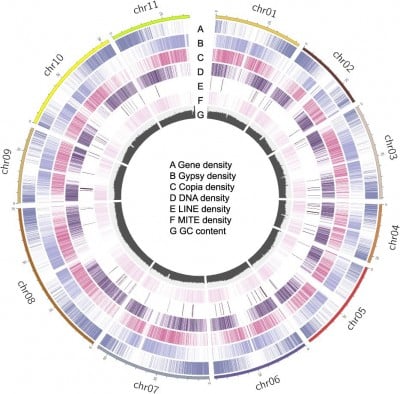A team of researchers has announced a significant breakthrough in plant genetics with the successful generation of the first telomere-to-telomere (T2T) genome of the mung bean, scientifically known as Vigna radiata. This comprehensive, gap-free genome sheds light on the structural variations that have played a crucial role in the domestication and adaptation of this important legume.
Using advanced sequencing technologies, including PacBio HiFi, Oxford Nanopore, and Hi-C sequencing, the researchers identified critical genetic changes that influence various aspects of the mung bean’s characteristics. These include plant architecture, stress response mechanisms, and metabolic pathways, all of which are essential for the crop’s resilience and yield.
The research highlights the role of transposable element amplification in reshaping the expression of nearby genes. Notably, genes associated with fatty acid synthesis, suberin formation, and phenylpropanoid metabolism have undergone significant selection pressures, indicating their importance in the plant’s evolution.
Implications for Mung Bean Breeding
This groundbreaking work provides a valuable foundation for further understanding the evolution of mung beans and offers insights that can guide molecular breeding strategies. By identifying key genetic markers, breeders can focus on enhancing traits related to yield and stress resilience, which are increasingly vital as climate change impacts agriculture worldwide.
The research team’s findings could have far-reaching implications for food security and agricultural sustainability. Mung beans are a crucial source of protein and nutrients in many countries, making improvements in their cultivation essential for addressing global nutritional needs.
With this complete genome sequence, the potential for enhanced breeding programs is now more accessible than ever. By leveraging these insights, scientists and agriculturalists can work towards developing superior mung bean varieties that not only yield more but also withstand environmental stresses.
This research underscores the importance of advanced genomic technologies in modern agriculture. As the scientific community continues to explore the genetic intricacies of various crops, the prospects for improved food production become increasingly promising. The findings were made public in 2023, marking a pivotal moment in the field of crop genetics.
